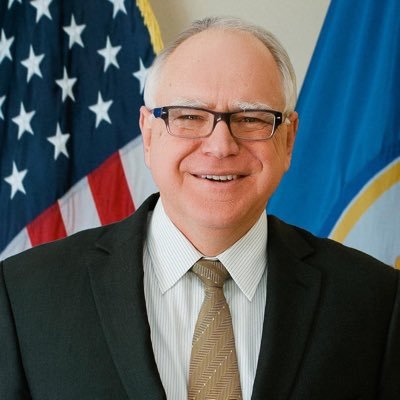
Envisioning an end to the days when their issues and concerns are left unheard and unaddressed, Minnesota foster youth and their advocates gathered at the state Capitol today to celebrate a bill that aims to increase accountability and oversight of the child protection system by creating a state watchdog office.
Legislation signed by Gov. Tim Walz (DFL) last month will create the Office of the Foster Youth Ombudsperson, serving as a resource for children and young adults in foster care. The office will be tasked with investigating individual complaints and identifying systemic problems, with regular reports delivered to the governor.
While the ombuds office is groundbreaking and much-celebrated in the state, it will take time to come to fruition in 2024.
Still, “it feels like a victory. Our voices are finally being heard,” said Ada Smith, 23, who testified before the Legislature in support of the bill in March. “Our parents are finally trying to do their job because the state is our parent. It just seems like a brighter future.”
Roughly two dozen states have established ombuds or advocacy offices with duties specifically related to children’s services, according to the National Council of State Legislatures. Some states, including Colorado and California, have had these offices for years, allowing children and teens to safely report abusive foster parents, concerns about a caseworker’s handling of their care or housing struggles.

The legislation that resulted in the future Office of the Foster Youth Ombudsperson was backed by Foster Advocates, a St. Paul nonprofit.
Minnesota has had an Office of Ombudsperson for Families since 1991, with a mission to ensure that children and families of color are protected by law in proceedings involving public and private agencies. But youth advocates have argued that foster youth, who are disproportionately Black and American Indian, have specific needs requiring a separate watchdog agency.
“Children of color are often placed in the foster care system at higher rates than white children. For too long, Minnesota has also had the highest rate of Native children in foster care in the nation,” Lt. Gov. Peggy Flanagan said at today’s event, underscoring the importance of oversight. “And by giving children — and that means all of our children — a voice, we can change things for the better. We don’t want to be the worst anymore. We want to be the best.”
Youth gathered at the Capitol in support of the ombuds office said they felt unheard and unsupported during their time in the child welfare system.
Smith said as a young adult in the system, her foster parents yelled at her when her infant cried at night. She said she had to beg to get the basic things she needed to care for him.
An ombuds office could have offered an avenue for intervention.
“Me and my child would have received more help. I wouldn’t have ran. I probably wouldn’t have been homeless for most of my foster experience,” Smith said.
Izzy Wagner, 20, said the office could have connected him with his siblings.
“It is sad that we as older foster youth didn’t have this opportunity, but now that younger foster youth do, they’ll be able to get out of the unhealthy foster homes,” Wagner said.
Upon receiving a complaint, the ombudsperson may investigate any agency action, including a request from a youth in foster care to examine a foster home. If the ombudsperson considers a complaint to be valid, they can recommend that the child welfare agency explain or change a decision or course of action.
“Instead of waiting weeks and weeks for my social worker to get back to me or calling 911 and them just brushing it off, I feel like if I would have had someone, I would have felt safer,” said Shawna Bullen-Fairbanks, who was in foster care over a nine-year period.
Sen. Karin Housley (R) and Rep. Jessica Hanson (DFL) authored the Senate and House bills establishing the ombuds office, but the impetus came from young people.
“This bill is the product of youth making sure that their voices and experiences are heard,” Hanson said at the signing ceremony. “They sought out to testify in committee. They overcame their fears and they stood for what they felt was right and fought for something that they wished they had or that they wish they have.”





